Comparing education earnings with homeownership
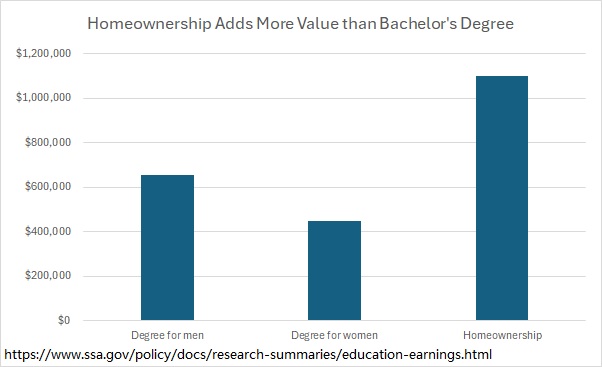
After controlling for key socio-demographic variables that influence earnings and the probability of college completion,
men with bachelor's degrees would earn $655,000 more in median lifetime earnings than high school graduates.
Women with a bachelor's degrees would earn $450,000 more in median lifetime earnings than high school graduates.
Owning a $200k home will earn about $1.1 million in 30 years compared to renting a similar home.
As college education could be important, economic value of homeownership is greater than a bachelor's degree.
Balance in 30 years comparing buying and renting
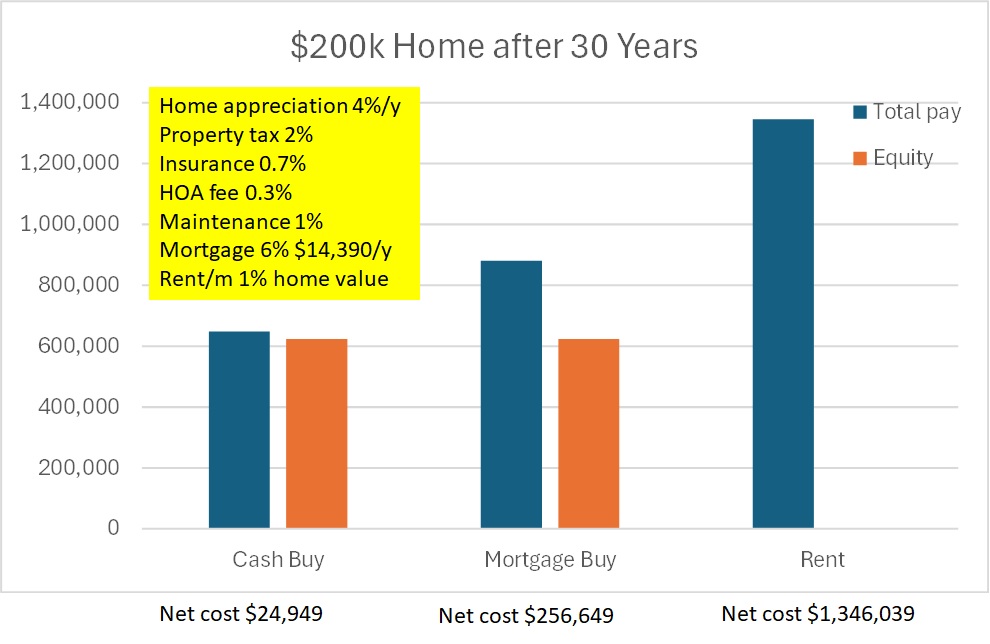
Renting a $200k home costs over $1 million in 30 years.
Buying a similar home without mortgage practically living in the home for free as operating cost is covered by home value appreciation.
Buying a similar home with mortgage has additional cost of paying interest not covered by home value appreciation, but net cost is still $1 million below renting.
The parameters to calculate the chart were based on Houston data.
This is how the market works. Landlords that do not receive enough rent to cover cost will tend to leave the business. Successful landlords get enough rent to cover mortgage and other cost, maintain positive cashflow, and they can continue to buy more homes to rent out.
Half of US renters spend over 30% of their income on rent and utilities, and a quarter of renters pay over half of their income on rent and utilities.
Many renters have trouble paying their bills. When they fail to pay bills or rent, their credit score become lower. With lower credit score, rent and deposit will be higher and they will have more trouble paying their bills.
There are two main factors keeping many Americans poor: low income and renting.
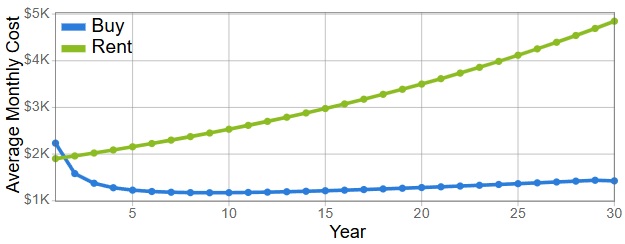
This chart from
calculator
shows that buying is cheaper if you stay for 1.5 years or longer for $200k home $1800 rent. You can change the parameters in the calculator to see how the comparison changes.
The average monthly cost sums up total cost from buying to selling so the home buying price and selling price are taken into consideration.
Average investment return is the compounding effect in this calculator.
Annual appreciation of 4% is used. US
home price index
data from 1987 to 2024 is equivalent to annual 4.4%. From 2006 to 2011 home prices declined 28%. From 2011 to 2024 increased 142%. From 2006 to 2024 increased 76%.
Home prices may increase above inflation on average is because US population is increasing and more people are moving toward population centers, pushing up land prices near population centers.
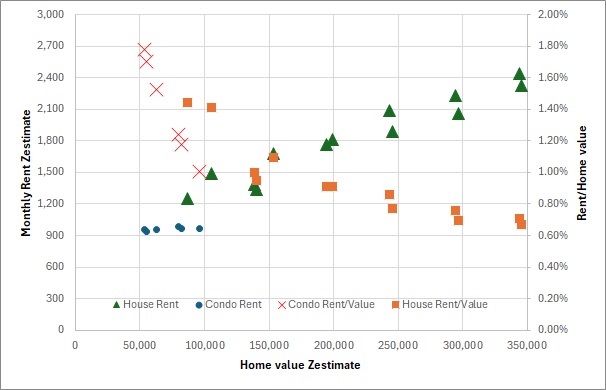
This chart shows sample data from Zillow.com of rent as percentage of home value in Houston.
For $50k condos monthly rent is about 1.8% of home value.
For $100k condos monthly rent is about 1% of home value.
For $100k houses monthly rent is about 1.4% of home value.
For $150k to $200k houses monthly rent is about 0.9% to 1% home value.
Home ownership rate by generation and age of top 50% income
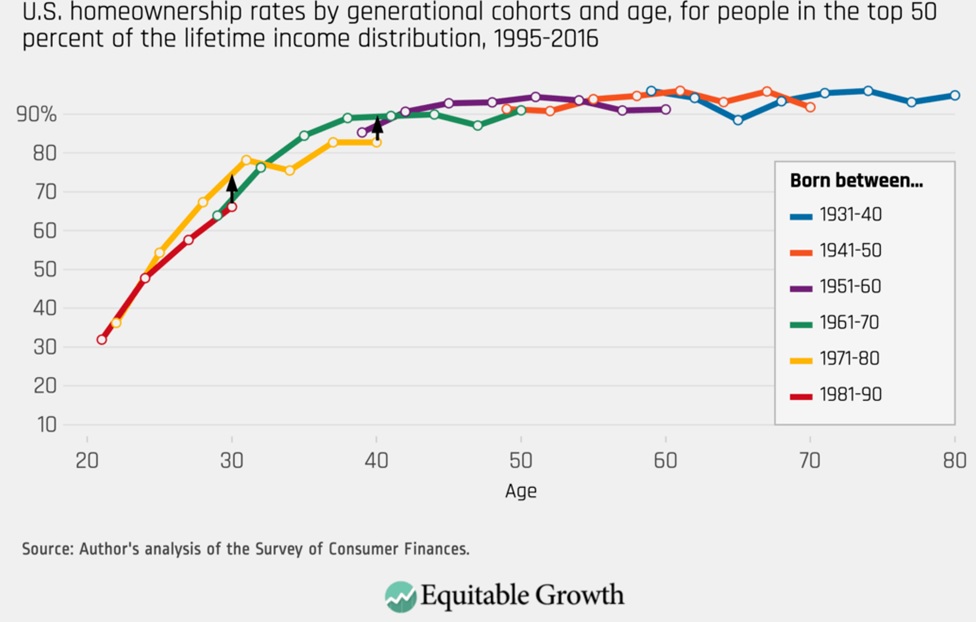
66% of top 50% income Americans are homeowners by age 30. 90% Americans want to be homeowners, and for the top 50% income households that goal can be reached by age 45.
Home ownership rate by generation and age of bottom 50% income
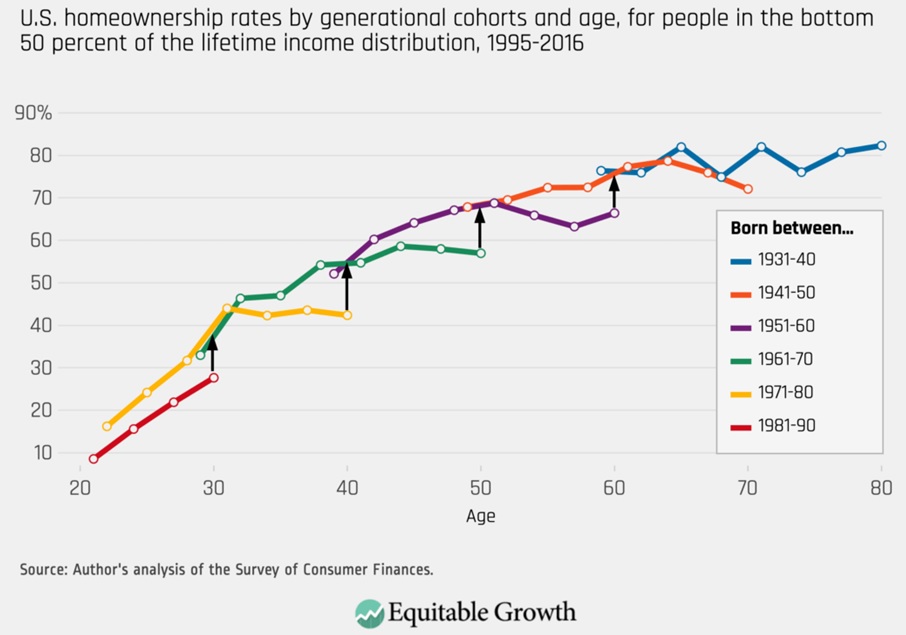
28% of the bottom 50% income Americans are homeowners by age 30, which is significantly lower than earlier generations. That means the majority of the bottom 50% income American's kids will be born and raised in renter households as their parents struggle to make ends meet.
About 30% of the bottom 50% income Americans will never own their home according to the current trend.
What priced home can you afford?
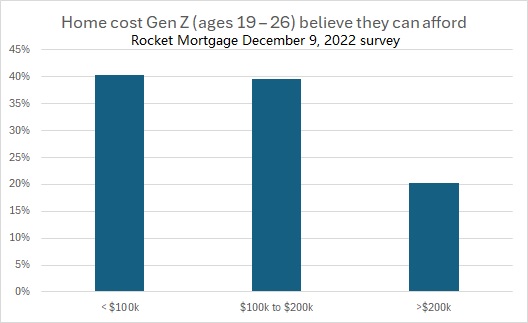
80% Generation Z (ages 19 – 26) believe they can only afford a home that costs less than $200,000. 40% believe they can only afford a home that costs less than $100,000.
Homes in these price ranges are hard to find in the current market. We need to build more homes in these price ranges, starter homes.
